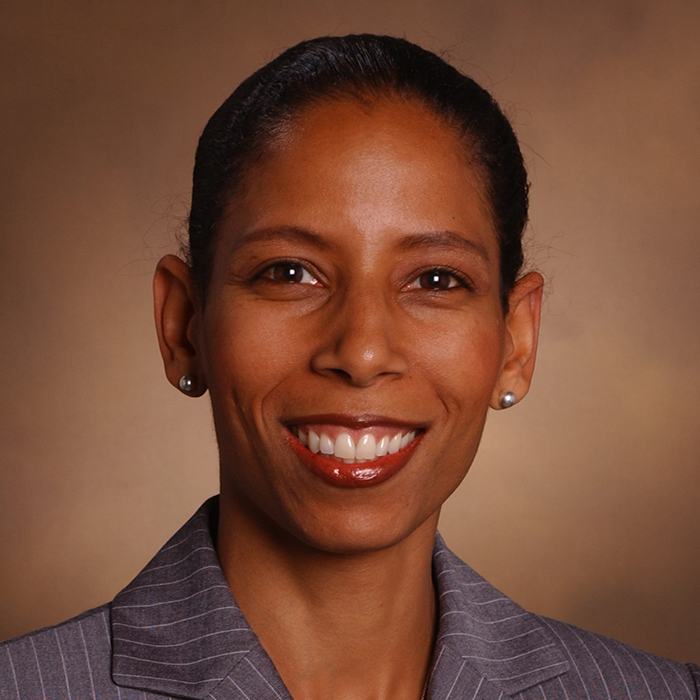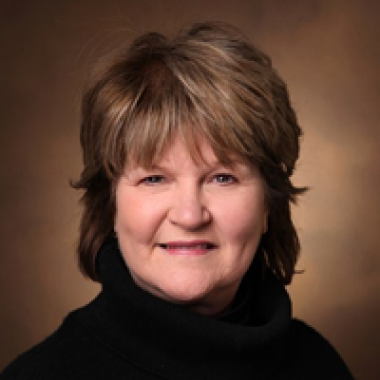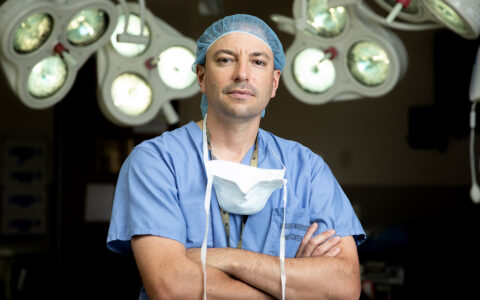As the COVID-19 pandemic continues in the U.S., the stressors for health care workers have shifted from acute to chronic, requiring different management strategies, says Charlene Dewey, M.D., director of the Center for Professional Health at Vanderbilt University Medical Center.
“People have to evolve with the stress. What we did in March and what we do now is totally different,” she said.
“What we did in March and what we do now is totally different.”
Back in March, Dewey co-wrote a commentary in the Annals of Internal Medicine on ways to proactively support health care workers during the pandemic. Now, her efforts have evolved to include a host of resources available to Vanderbilt clinicians and staff, and to others nationally as online education and training.
Predicting Stressors
Dewey has helped create downloadable tip sheets that address common concerns of health care workers during COVID-19, based on her experiences at the Center for Professional Health. The tip sheets are now included among the National Academy of Medicine’s COVID-19 resources.
One tip sheet addresses back-to-school concerns, particularly for parents of special needs children. Others are tailored for furloughed health care workers or those at risk of substance abuse, and more are on the way.
“The unpredictability of this situation is so stressful,” Dewey said, citing regions that have begun reopening only to close down again. “We are trying to help providers predict some of the stressors. We look down the line to see what might catch them off guard.”
Online Resources and Counseling
The tip sheets complement other online resources, including a weekly webinar on requested topics. Dewey’s team has also successfully moved all of the Center’s wellness courses online for access during quarantine, and provides CME credits for participation.
Still, Dewey said some health care workers may require further support. At Vanderbilt, she refers them to the medical center’s Work/Life Connections program, a physician health and wellness program that offers coaching and counseling – plus an additional set of COVID-19 resources.
Mary Yarbrough, M.D., directs the program at Vanderbilt, which was the first of its kind in the country. She also co-chaired the Vanderbilt Task Force for Empowerment and Well-being with Reid Thompson, M.D., chair of neurological surgery at Vanderbilt.
“We know that strengthening well-being among individuals strengthens all of us,” Yarbrough said. “Especially during this pandemic time, physicians need to find meaning and enjoyment in their work.”
“Strengthening well-being among individuals strengthens all of us.”
Long-term Support
Dewey says communication and maintaining a commitment to supporting health care workers will be key for dealing with the pandemic over the long term.
“Some people thought it should be done by now. I think as physicians, we understood the reality that this wasn’t going away any time soon,” Dewey said. “Now we’re making sure we’ve adapted our routines, we’re grounded in them, and they are becoming habit.”
One enduring message, Dewey sees, must be the importance of self-care. Without it, experts say high stress can have debilitating effects on a health care worker’s cognition and physical health.
Yarbrough adds, “Well-being can’t be another add-on task for physicians; we need to find ways to empower physicians and their organizations to prioritize well-being in the same way we consider quality, safety, and productivity.”
“Well-being can’t be another add-on task for physicians.”






